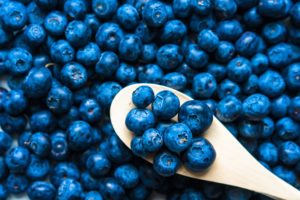The American Institute for Cancer Research (AICR) encourages everyone to follow certain recommendations for a healthy lifestyle, which can help prevent the development of cancer (and other disease). But how much does following those recommendations actually help?
Lifestyle and Colorectal Cancer Risk
While we don’t have statistical evidence for every type of cancer, we can give you an answer with regard to colorectal cancer. A recent study, published in late October of this year in Cancer Causes & Control, reveals that the more AICR Recommendations were followed, the lower the risk. One of AICR’s recommendations that is most strongly linked to reduced colorectal cancer risk, for both men and women, is cutting processed meat, but, ultimately, the more healthy recommendations followed, the lower the risk.
In the recent study, researchers analyzed data from 67,000 participants of the VITamins And Lifestyle Study. Participants, aged 50 to 76 years, were cancer-free and answered particular questions about their diet, weight, and other lifestyle habits, at the beginning of the study. The study scored whether each participant met AICR’s Recommendations regarding physical activity, body weight, alcohol, plant foods, energy density, and processed and red meat.
Fast Forward 8 Years…
Approximately eight years later, 546 of the 67,000 participants had been diagnosed with colorectal cancer. While taking BMI and other recognized risk factors into account, it was determined that meeting one to three of AICR’s Recommendations lowered risk by a little more than one third. Meeting four to six of the recommendations lowered risk by around half. With these numbers, we expect if participants followed all 10 AICR Cancer Prevention Recommendations, their risk of developing colorectal cancer would be drastically reduced.
In this particular study, the recommendations that were most strongly associated with reduced colorectal cancer risk for men were red and processed meat and alcohol; for women, body weight and, like men, red and processed meat.
There’s A Lot You Can Do
We underestimate how much we can actually do to safeguard our health. Leading a healthy lifestyle is the only way to have a vibrant, full life. Being aware of risk factors is also important. Inherited cancer risk factors do exist for some people but knowing that they’re there can help us make the necessary preventative choices to stay strong and healthy.



 Taking It A Step Further
Taking It A Step Further